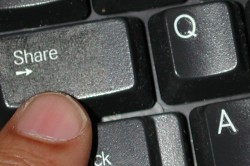
What does “like” really mean?
Thank you Facebook. Ever since I was a child I knew what the word “like” meant. Now, the word “like” has taken on a completely new context because of the prevalence of social media. As a child, I liked people, places, and things, which simply meant I enjoyed them. Now, I get to “like” things on the net. But what does “like” really mean?
For example, I have been reading about the horrific tragedy that has recently befallen Japan with the massive earthquake and tsunami. I have read several stories about the situation unfolding in Japan and found them to be engaging and compelling. This created a bit of a quandary for me. Do I “like” them?
By “liking” something, am I endorsing the topic, tragedy, or the ability of the author to write a very good article? I really must admit that I feel awkward when I “like” an article about a tragic event or anything that is not positive. Am I completely missing the boat on the concept of “liking” something? How do I show my appreciation to the author or the website for the content they are providing without seeming to endorse or supporting a topic that I am in strong opposition to or is related to some tragic event?
I do not think I am the only person who has a hard time “liking” an article about a tragic event simply based on the amount of “likes” that I see on so many recent articles. Maybe on these types of articles, we should start a new craze that instead of liking something we could show our support with a button that says, “Like the article, but not the event.” I know this is not very practical, but you get the idea.
So is what you “like” clear in your mind?
By no means am I suggesting that you should not “like” this posting or blog 😉
3 thoughts on “What does “like” really mean?”
Ditto here, the “like” button has (like everything else on the net) become another tool for advertising. Sorry…”endorsement”.
Funny, I am the same way. I don’t like stories about bad events. I guess I should give a posting a like if it is written well and I like the posting but I wont.
See, I am not the only one 😉
Thanks for stopping by!
Mike